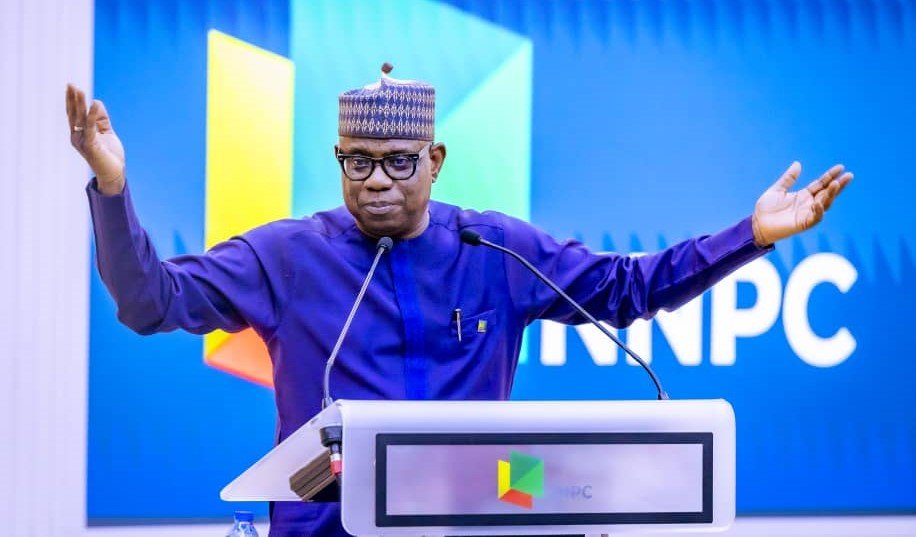THE Nigerian National Petroleum Company Limited (NNPC) is currently reviewing the future of its loss-making, state-owned refineries and may consider selling some of them, according to Group Chief Executive Officer, Bayo Ojulari.
Ojulari disclosed this during an exclusive interview with Bloomberg on the sidelines of the 9th OPEC International Seminar held in Vienna, Austria, where top energy leaders gathered to discuss the future of oil markets, global demand, and sustainable energy practices.
“We’re reviewing all our refinery strategies now,” Ojulari said. “We hope before the end of the year, we’ll be able to conclude that review. That review may lead to us doing things slightly differently.”
When pressed on whether a potential outright sale of the refineries was among the options being explored, Ojulari confirmed that “sale is not out of the question.”
“All options are on the table, to be frank,” he noted. “But that decision will be based on the outcome of the reviews we’re doing now.”
The three state-owned refineries located in Port Harcourt, Warri, and Kaduna have for decades been a major drain on Nigeria’s public finances. Despite multiple rounds of rehabilitation funding estimated at over $25 billion cumulatively since the 1990s, none of the plants have sustained operations long enough to impact Nigeria’s domestic fuel demand.
In November 2023, the Port Harcourt refinery was briefly re-commissioned after years of repairs, only to be shut down again in May 2024 for maintenance due to technical setbacks.
Ojulari cited the age of the infrastructure, complexity of modernising outdated systems, and technological failures as major obstacles to sustainable refinery operations.
“We’ve brought in a lot of new technology and made significant investments over the last several years. But we’ve been challenged,” he said.
“Some of those technologies have not worked as we expected. And when you’re trying to revive a refinery that’s been idle for so long, things get far more complicated.”
The possibility of selling the refineries—once considered a national pride marks a turning point in Nigeria’s oil policy. It also aligns with growing calls from stakeholders, including the Manufacturers Association of Nigeria (MAN) and independent crude refiners, who have previously urged the government to privatize or scrap the refineries and redirect funds toward modular refining technologies.
Former President Olusegun Obasanjo and business magnate Aliko Dangote have repeatedly criticized the government’s obsession with reviving “obsolete infrastructure,” suggesting that privatization is the only viable path forward.
In recent years, over $1.4 billion was approved for Port Harcourt refinery’s repair alone, with similar allocations for Warri and Kaduna refineries despite persistent failures to reach full operational capacity.
Ojulari also raised concerns over Nigeria’s high cost of crude oil production, which he estimated at $25 to $30 per barrel, far above global industry averages.
“Operating costs are currently hovering around $20 per barrel,” he said. “When you factor in the capital investment especially in pipeline security our total cost goes even higher.”
He explained that pipeline vandalism and oil theft have forced the NNPC to invest heavily in surveillance and security, which has driven costs upward. However, he expressed optimism that costs would fall as stability returns to oil-producing regions.
“Today, we have 100 per cent availability of our pipelines. That came out of significant investment in securing infrastructure. Over time, as the situation stabilizes, we expect costs to decline.”
Despite its current challenges, NNPC still maintains ambitious production targets. According to Ojulari, the company hopes to increase Nigeria’s oil output to 1.9 million barrels per day (bpd) by the end of 2025, up from the current levels of approximately 1.3 million bpd.
Such a target, if met, would significantly boost government revenues and stabilize foreign exchange inflows amid ongoing fiscal constraints.
The potential sale of the refineries would mark a dramatic shift in NNPC’s corporate strategy under the Petroleum Industry Act (PIA), which transformed the state-owned oil firm into a limited liability company in 2021.
The reform aims to make the company more commercially driven, efficient, and accountable qualities critics argue are incompatible with operating dilapidated and unprofitable refineries.
Calls for privatization have intensified, especially with the success of the Dangote Refinery, a 650,000 barrels-per-day private facility that has begun supplying diesel and aviation fuel, with plans to begin local petrol sales in Q3 2025.
With the strategic review expected to conclude by December, the Nigerian government faces tough decisions. Will it finally break with decades of state refinery ownership, or will it commit to yet another round of costly, uncertain repairs?







